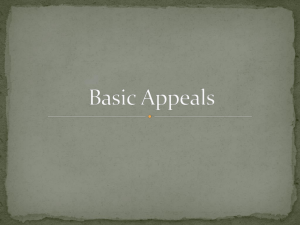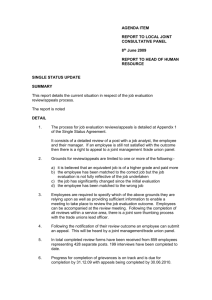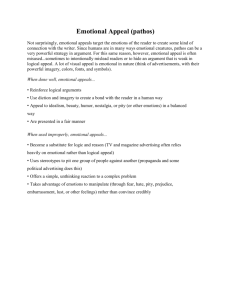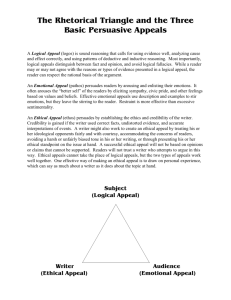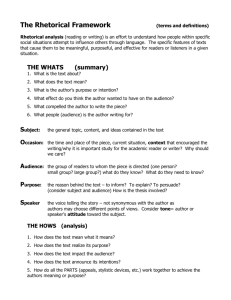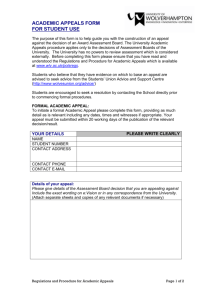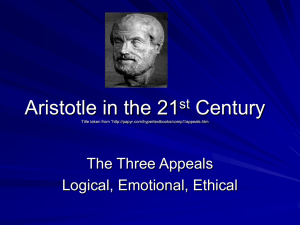Persuasion & Argument: Logos, Ethos, Pathos Worksheet
advertisement
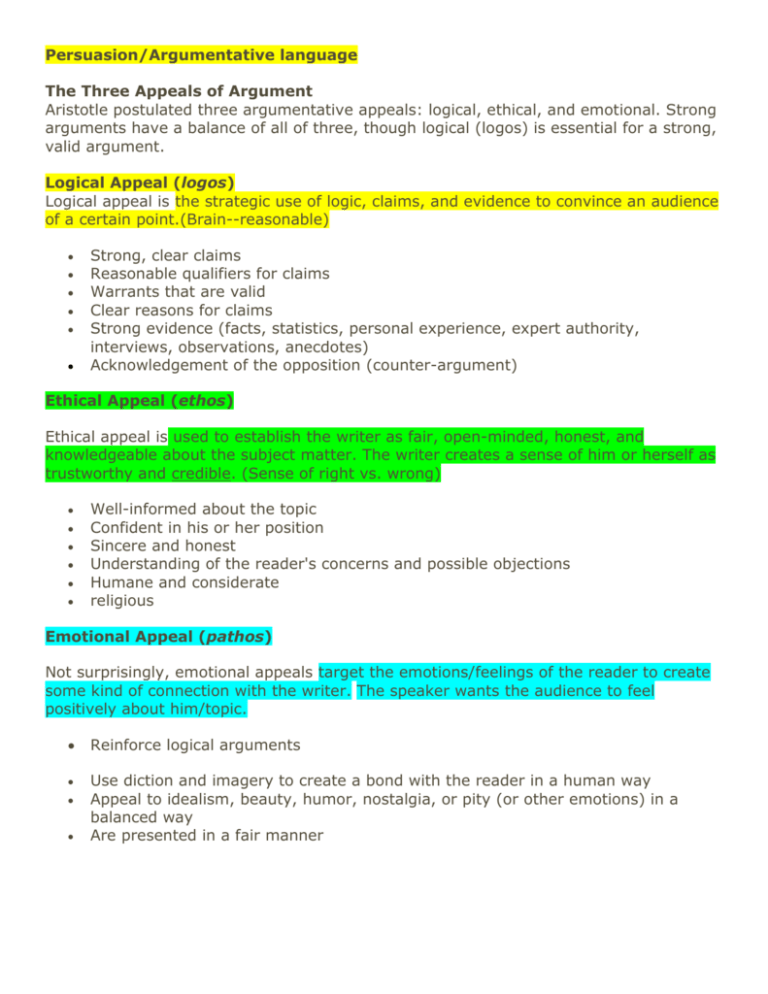
Persuasion/Argumentative language The Three Appeals of Argument Aristotle postulated three argumentative appeals: logical, ethical, and emotional. Strong arguments have a balance of all of three, though logical (logos) is essential for a strong, valid argument. Logical Appeal (logos) Logical appeal is the strategic use of logic, claims, and evidence to convince an audience of a certain point.(Brain--reasonable) Strong, clear claims Reasonable qualifiers for claims Warrants that are valid Clear reasons for claims Strong evidence (facts, statistics, personal experience, expert authority, interviews, observations, anecdotes) Acknowledgement of the opposition (counter-argument) Ethical Appeal (ethos) Ethical appeal is used to establish the writer as fair, open-minded, honest, and knowledgeable about the subject matter. The writer creates a sense of him or herself as trustworthy and credible. (Sense of right vs. wrong) Well-informed about the topic Confident in his or her position Sincere and honest Understanding of the reader's concerns and possible objections Humane and considerate religious Emotional Appeal (pathos) Not surprisingly, emotional appeals target the emotions/feelings of the reader to create some kind of connection with the writer. The speaker wants the audience to feel positively about him/topic. Reinforce logical arguments Use diction and imagery to create a bond with the reader in a human way Appeal to idealism, beauty, humor, nostalgia, or pity (or other emotions) in a balanced way Are presented in a fair manner Parallelism Similarity of structure in a pair or series of related words or phrases Mary likes hiking, biking, and swimming. We will not be hindered. We will not be stopped. We will not be helpless. Rhetorical Questions A question asked merely for effect with no answer expected. The answer may be obvious or immediately provided by the questioner. How did you get to be so smart? "Isn't it a bit unnerving that doctors call what they do 'practice'?" (George Carlin) "The means are at hand to fulfill the age-old dream: poverty can be abolished. How long shall we ignore this under-developed nation in our midst? How long shall we look the other way while our fellow human beings suffer? How long?" (Michael Harrington, The Other America: Poverty in the United States, 1962) Definitions Logical appeals Emotional appeals Ethical appeals Parallelism Rhetorical questions Persuasion/Argumentative language Name___________________________ Definitions Logical appeals Persuasion/Argumentative language Name___________________________ Emotional appeals Ethical appeals Parallelism Rhetorical questions


